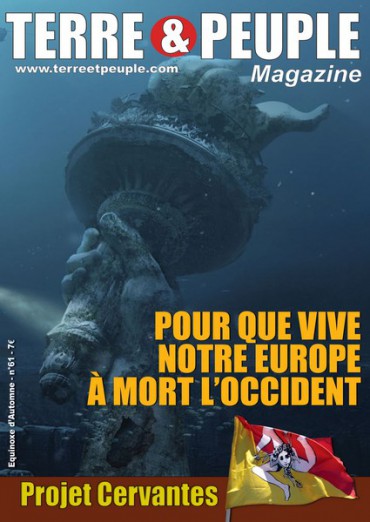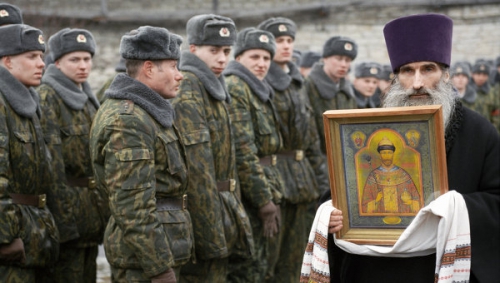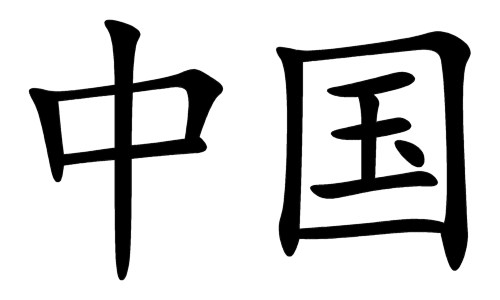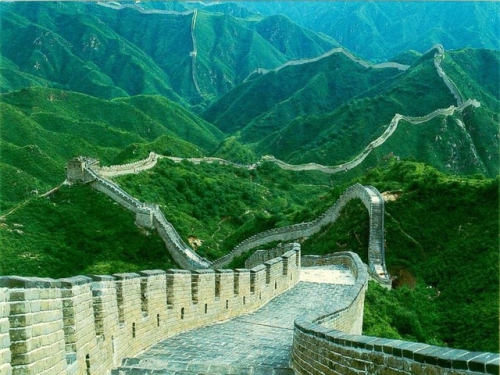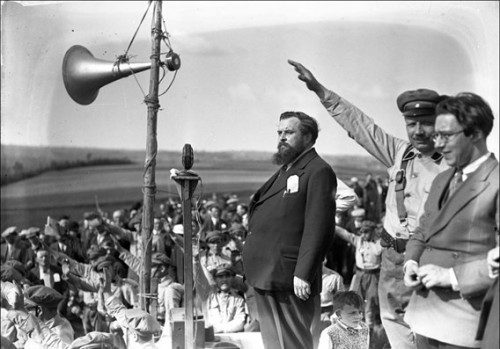The European Union is not (anymore) guided by politicians with a grasp of history, a sober assessment of global reality, or simple common sense connected with the long term interests of what they are guiding. If any more evidence was needed, it has certainly been supplied by the sanctions they have agreed on last week aimed at punishing Russia.
One way to fathom their foolishness is to start with the media, since whatever understanding or concern these politicians may have personally they must be seen to be doing the right thing, which is taken care of by TV and newspapers.
In much of the European Union the general understanding of global reality since the horrible fate of the people on board the Malaysian Airliner comes from mainstream newspapers and TV which have copied the approach of Anglo-American mainstream media, and have presented ‘news’ in which insinuation and vilification substitute for proper reporting. Respected publications, like the Financial Times or the once respected NRC Handelsblad of the Netherlands for which I worked sixteen years as East Asia Correspondent, not only joined in with this corrupted journalism but helped guide it to mad conclusions. The punditry and editorials that have grown out of this have gone further than anything among earlier examples of sustained media hysteria stoked for political purposes that I can remember. The most flagrant example I have come across, an anti-Putin leader in the (July 26) Economist Magazine, had the tone of Shakespeare’s Henry V exhorting his troops before the battle of Agincourt as he invaded France.
One should keep in mind that there are no European-wide newspapers or publications to sustain a European public sphere, in the sense of a means for politically interested Europeans to ponder and debate with each other big international developments. Because those interested in world affairs usually read the international edition of the New York Times or the Financial Times, questions and answers on geopolitical matters are routinely shaped or strongly influenced by what editors in New York and London have determined as being important. Thinking that may deviate significantly as can now be found in Der Spiegel, the Frankfurter Allgemeine Zeitung, Die Zeit and Handelsblatt, does not travel across German borders. Hence we do not see anything like a European opinion evolving on global affairs, even when these have a direct impact on the interests of the European Union itself.
The Dutch population was rudely shaken out of a general complacency with respect to world events that could affect it, through the death of 193 fellow nationals (along with a 105 people of other nationalities) in the downed plane, and its media were hasty in following the American-initiated finger-pointing at Moscow. Explanations that did not in some way involve culpability of the Russian president seemed to be out of bounds. This was at odds right away with statements of a sober Dutch prime minister, who was under considerable pressure to join the fingerpointing but who insisted on waiting for a thorough examination of what precisely had happened.
The TV news programs I saw in the days immediately afterwards had invited, among other anti–Russian expositors, American neocon-linked talking heads to do the disclosing to a puzzled and truly shaken up audience. A Dutch foreign policy specialist explained that the foreign minister or his deputy could not go to the site of the crash (as Malaysian officials did) to recover the remains of Dutch citizens, because that would amount to an implicit recognition of diplomatic status for the “separatists”. When the European Union en bloc recognizes a regime that has come into existence through an American initiated coup d’état, you are diplomatically stuck with it.
The inhabitants and anti-Kiev fighters at the crash site were portrayed, with images from youtube, as uncooperative criminals, which for many viewers amounted to a confirmation of their guilt. This changed when later reports from actual journalists showed shocked and deeply concerned villagers, but the discrepancy was not explained, and earlier assumptions of villainy did not make way for any objective analysis of why these people might be fighting at all. Tendentious twitter and youtube ‘news’ had become the basis for official Dutch indignation with the East Ukrainians, and a general opinion arose that something had to be set straight, which was, again in general opinion, accomplished by a grand nationally televised reception of the human remains (released through Malaysian mediation) in a dignified sober martial ceremony.
Nothing that I have seen or read even intimated that the Ukraine crisis – which led to coup and civil war – was created by neoconservatives and a few R2P (“Responsibility to Protect”) fanatics in the State Department and the White House, apparently given a free hand by President Obama. The Dutch media also appeared unaware that the catastrophe was immediately turned into a political football for White House and State Department purposes. The likelihood that Putin was right when he said that the catastrophe would not have happened if his insistence on a cease-fire had been accepted, was not entertained.
As it was, Kiev broke the cease-fire – on the 10th of June – in its civil war against Russian speaking East Ukrainians who do not wish to be governed by a collection of thugs, progeny of Ukrainian nazis, and oligarchs enamored of the IMF and the European Union. The supposed ‘rebels’ have been responding to the beginnings of ethnic cleansing operations (systematic terror bombing and atrocities – 30 or more Ukrainians burned alive) committed by Kiev forces, of which little or nothing has penetrated into European news reports.
It is unlikely that the American NGOs, which by official admission spent 5 billion dollars in political destabilization efforts prior to the February putsch in Kiev, have suddenly disappeared from the Ukraine, or that America’s military advisors and specialized troops have sat idly by as Kiev’s military and militias mapped their civil war strategy; after all, the new thugs are as a regime on financial life-support provided by Washington, the European Union and IMF. What we know is that Washington is encouraging the ongoing killing in the civil war it helped trigger.
But Washington has constantly had the winning hand in a propaganda war against, entirely contrary to what mainstream media would have us believe, an essentially unwilling opponent. Waves of propaganda come from Washington and are made to fit assumptions of a Putin, driven and assisted by a nationalism heightened by the loss of the Soviet empire, who is trying to expand the Russian Federation up to the borders of that defunct empire. The more adventurous punditry, infected by neocon fever, has Russia threatening to envelop the West. Hence Europeans are made to believe that Putin refuses diplomacy, while he has been urging this all along. Hence prevailing propaganda has had the effect that not Washington’s but Putin’s actions are seen as dangerous and extreme. Anyone with a personal story that places Putin or Russia in a bad light must move right now; Dutch editors seem insatiable at the moment.
There is no doubt that the frequently referred to Moscow propaganda exists. But there are ways for serious journalists to weigh competing propaganda and discern how much veracity or lies and bullshit they contain. Within my field of vision this has only taken place a bit in Germany. For the rest we must piece political reality together relying on the now more than ever indispensable American websites hospitable to whistleblowers and old-fashioned investigative journalism, which especially since the onset of the ‘war on terrorism’ and the Iraq invasion have formed a steady form of samizdat publishing.
In the Netherlands almost anything that comes from the State Department is taken at face value. America’s history, since the demise of the Soviet Union, of truly breathtaking lies: on Panama, Afghanistan, Iraq, Syria, Venezuela, Libya and North Korea; its record of overthrown governments; its black-op and false flag operations; and its stealthily garrisoning of the planet with some thousand military bases, is conveniently left out of consideration. The near hysteria throughout a week following the downed airliner prevented people with some knowledge of relevant history from opening their mouths. Job security in the current world of journalism is quite shaky, and going against the tide would be almost akin to siding with the devil, as it would damage one’s journalistic ‘credibility’.
What strikes an older generation of serious journalists as questionable about the mainstream media’s credibility is editorial indifference to potential clues that would undermine or destroy the official story line; a story line that has already permeated popular culture as is evident in throwaway remarks embellishing book and film reviews along with much else. In the Netherlands the official story is already carved in stone, which is to be expected when it is repeated ten-thousand times. It cannot be discounted, of course, but it is based on not a shred of evidence.
The presence of two Ukrainian fighter planes near the Malaysian airliner on Russian radar would be a potential clue I would be very interested in if I were investigating either as journalist or member of the investigation team that the Netherlands officially leads. This appeared to be corroborated by a BBC Report with eyewitness accounts from the ground by villagers who clearly saw another plane, a fighter, close to the airliner, near the time of its crash, and heard explosions coming from the sky. This report has recently drawn attention because it was removed from the BBC’s archive. I would want to talk with Michael Bociurkiw, one of the first inspectors from the Organization for Security and Cooperation in Europe (OSCE) to reach the crash site who spent more than a week examining the wreckage and has described on CBC World News two or three “really pock-marked” pieces of fuselage. “It almost looks like machine gun fire; very, very strong machine gun fire that has left these unique marks that we haven’t seen anywhere else.”
I would certainly also want to have a look at the allegedly confiscated radar and voice records of the Kiev Air Control Tower to understand why the Malaysian pilot veered off course and rapidly descended shortly before his plane crashed, and find out whether foreign air controllers in Kiev were indeed sent packing immediately after the crash. Like the “Veteran Intelligence Professionals for Sanity”, I would certainly urge the American authorities with access to satellite images to show the evidence they claim to have of BUK missile batteries in ‘rebel’ hands as well as of Russian involvement, and ask them why they have not done so already. Until now Washington has acted like a driver who refuses a breathalyzer test. Since intelligence officials have leaked to some American newspapers their lesser certainty about the American certainties as brought to the world by the Secretary of State, my curiosity would be unrelenting.
To place European media loyalty to Washington in the Ukraine case as well as the slavish conduct of European politicians in perspective, we must know about and understand Atlanticism. It is a European faith. It has not given rise to an official doctrine, of course, but it functions like one. It is well summed up by the Dutch slogan at the time of the Iraq invasion: “zonder Amerika gaat het niet” (without the United States [things] [it] won’t work). Needless to say, the Cold War gave birth to Atlanticism. Ironically, it gained strength as the threat from the Soviet Union became less persuasive for increasing numbers among European political elites. That probably was a matter of generational change: the farther away from World War II, the less European governments remembered what it means to have an independent foreign policy on global-sized issues. Current heads of government of the European Union are unfamiliar with practical strategic deliberations. Routine thought on international relations and global politics is deeply entrenched in Cold War epistemology.
This inevitably also informs ‘responsible’ editorial policies. Atlanticism is now a terrible affliction for Europe: it fosters historical amnesia, willful blindness and dangerously misconceived political anger. But it thrives on a mixture of lingering unquestioned Cold War era certainties about protection, Cold War loyalties embedded in popular culture, sheer European ignorance, and an understandable reluctance to concede that one has even for a little bit been brainwashed. Washington can do outrageous things while leaving Atlanticism intact because of everyone’s forgetfulness, which the media do little or nothing to cure. I know Dutch people who have become disgusted with the villification of Putin, but the idea that in the context of Ukraine the fingerpointing should be toward Washington is well-nigh unacceptable. Hence, Dutch publications, along with many others in Europe, cannot bring themselves to place the Ukraine crisis in proper perspective by acknowledging that Washington started it all, and that Washington rather than Putin has the key to its solution. It would impel a renunciation of Atlanticism.
Atlanticism derives much of its strength through NATO, its institutional embodiment. The reason for NATO’s existence, which disappeard with the demise of the Soviet Union, has been largely forgotten. Formed in 1949, it was based on the idea that transatlantic cooperation for security and defense had become necessary after World War II in the face of a communism, orchestrated by Moscow, intent on taking over the entire planet. Much less talked about was European internal distrust, as the Europeans set off on their first moves towards economic integration. NATO constituted a kind of American guarantee that no power in Europe would ever try to dominate the others.
NATO has for some time now been a liability for the European Union, as it prevents development of concerted European foreign and defense policies, and has forced the member states to become instruments serving American militarism. It is also a moral liability because the governments participating in the ‘coalition of the willing’ have had to sell the lie to their citizens that European soldiers dying in Iraq and Afghanistan have been a necessary sacrifice to keep Europe safe from terrorists. Governments that have supplied troops to areas occupied by the United States have generally done this with considerable reluctance, earning the reproach from a succession of American officials that Europeans do too little for the collective purpose of defending democracy and freedom.
As is the mark of an ideology, Atlanticism is ahistorical. As horse medicine against the torment of fundamental political ambiguity it supplies its own history: one that may be rewritten by American mainstream media as they assist in spreading the word from Washington.
There could hardly be a better demonstration of this than the Dutch experience at the moment. In conversations these past three weeks I have encountered genuine surprise when reminding friends that the Cold War ended through diplomacy with a deal made on Malta between Gorbachev and the elder Bush in December 1989, in which James Baker got Gorbachev to accept the reunification of Germany and withdrawal of Warsaw Pact troops with a promise that NATO would not be extended even one inch to the East. Gorbachev pledged not to use force in Eastern Europe where the Russians had some 350,000 troops in East Germany alone, in return for Bush’s promise that Washington would not take advantage of a Soviet withdrawal from Eastern Europe. Bill Clinton reneged on those American promises when, for purely electoral reasons, he boasted about an enlargement of NATO and in 1999 made the Czech Republic and Hungary full members. Ten years later another nine countries became members, at which point the number of NATO countries was double the number during the Cold War. The famous American specialist on Russia, Ambassador George Kennan, originator of Cold War containment policy, called Clinton’s move “the most fateful error of American policy in the entire post-cold-war era.”
Historical ignorance abetted by Atlanticism is poignantly on display in the contention that the ultimate proof in the case against Vladimir Putin is his invasion of Crimea. Again, political reality here was created by America’s mainstream media. There was no invasion, as the Russian sailors and soldiers were already there since it is home to the ‘warm water’ Black Sea base for the Russian navy. Crimea has been a part of Russia for as long as the United States has existed. In 1954 Khrushchev, who himself came from the Ukraine, gave it to the Ukrainian Socialist Republic, which came down to moving a region to a different province, since Russia and Ukraine still belonged to the same country. The Russian speaking Crimean population was happy enough, as it voted in a referendum first for independence from the Kiev regime that resulted from the coup d’état, and subsequently for reunification with Russia.
Those who maintain that Putin had no right to do such a thing are unaware of another strand of history in which the United States has been moving (Star Wars) missile defense systems ever closer to Russian borders, supposedly to intercept hostile missiles from Iran, which do not exist. Sanctimonious talk about territorial integrity and sovereignty makes no sense under these circumstances, and coming from a Washington that has done away with the concept of sovereignty in its own foreign policy it is downright ludicrous.
A detestable Atlanticist move was the exclusion of Putin from the meetings and other events connected with the commemoration of the Normandy landings, for the first time in 17 years. The G8 became the G7 as a result. Amnesia and ignorance have made the Dutch blind to a history that directly concerned them, since the Soviet Union took the heart out of the Nazi war machine (that occupied the Netherlands) at a cost of incomparable and unimaginable numbers of military dead; without that there would not have been a Normandy invasion.
Not so long ago, the complete military disasters of Iraq and Afghanistan appeared to be moving NATO to a point where its inevitable demise could not to be too far off. But the Ukraine crisis and Putin’s decisiveness in preventing the Crimea with its Russian Navy base from possibly falling into the hands of the American-owned alliance, has been a godsend to this earlier faltering institution.
NATO leadership has already been moving troops to strengthen their presence in the Baltic states, sending missiles and attack aircraft to Poland and Lithuania, and since the downing of the Malaysian airliner it has been preparing further military moves that may turn into dangerous provocations of Russia. It has become clear that the Polish foreign minister together with the Baltic countries, none of which partook in NATO when its reason for being could still be defended, have become a strong driving force behind it. A mood of mobilization has spread in the past week. The ventriloquist dummies Anders Fogh Rasmussen and Jaap de Hoop Scheffer can be relied upon to take to TV screens inveighing against NATO member-state backsliding. Rasmussen, the current Secretary General, declared on August 7 in Kiev that NATO’s “support for the sovereignty and territorial integrity of Ukraine is unwavering” and that he is looking to strengthen partnership with the country at the Alliance’s summit in Wales in September. That partnership is already strong, so he said, “and in response to Russia’s aggression, NATO is working even more closely with Ukraine to reform its armed forces and defense institutions.”
In the meantime, in the American Congress 23 Senate Republicans have sponsored legislation, the “Russian Aggression Prevention Act”, which is meant to allow Washington to make the Ukraine a non-NATO ally and could set the stage for a direct military conflict with Russia. We will probably have to wait until after America’s midterm elections to see what will become of it, but it already helps provide a political excuse for those in Washington who want to take next steps in the Ukraine.
In September last year Putin helped Obama by making it possible for him to stop a bombing campaign against Syria pushed by the neocons, and had also helped in defusing the nuclear dispute with Iran, another neocon project. This led to a neocon commitment to break the Putin-Obama link. It is hardly a secret that the neoconservatives desire the overthrow of Putin and eventual dismemberment of the Russian Federation. Less known in Europe is the existence of numerous NGOs at work in Russia, which will help them with this. Vladimir Putin could strike now or soon, to preempt NATO and the American Congress, by taking Eastern Ukraine, something he probably should have done right after the Crimean referendum. That would, of course, be proof of his evil intentions in European editorial eyes.
In the light of all this, one of the most fateful questions to ask in current global affairs is: what has to happen for Europeans to wake up to the fact that Washington is playing with fire and has ceased being the protector they counted on, and is instead now endangering their security? Will the moment come when it becomes clear that the Ukraine crisis is, most of all, about placing Star Wars missile batteries along an extensive stretch of Russian border, which gives Washington – in the insane lingo of nuclear strategists – ‘first strike’ capacity?
It is beginning to sink in among older Europeans that the United States has enemies who are not Europe’s enemies because it needs them for domestic political reasons; to keep an economically hugely important war industry going and to test by shorthand the political bona fides of contenders for public office. But while using rogue states and terrorists as targets for ‘just wars’ has never been convincing, Putin’s Russia as demonized by a militaristic NATO could help prolong the transatlantic status quo. The truth behind the fate of the Malaysian airliner, I thought from the moment that I heard about it, would be politically determined. Its black boxes are in London. In NATO hands?
Other hindrances to an awakening remain huge; financialization and neoliberal policies have produced an intimate transatlantic entwining of plutocratic interests. Together with the Atlanticist faith these have helped stymie the political development of the European Union, and with that Europe’s ability to proceed with independent political decisions. Since Tony Blair, Great Britain has been in Washington’s pocket, and since Nicolas Sarkozy one can say more or less the same of France.
That leaves Germany. Angela Merkel was clearly unhappy with the sanctions, but in the end went along because she wants to remain on the good side of the American president, and the United States as the conqueror in World War II does still have leverage through a variety of agreements. Germany’s foreign minister, Frank-Walter Steinmeier, quoted in newspapers and appearing on TV, repudiated the sanctions and points at Iraq and Libya as examples of the results brought by escalation and ultimatums, yet he too swings round and in the end goes along with them.
Der Spiegel is one of the German publications that offer hope. One of its columnists, Jakob Augstein, attacks the “sleepwalkers” who have agreed to sanctions, and censures his colleagues’ finger-pointing at Moscow. Gabor Steingart, who publishes Handelsblatt, inveighs against the “American tendency to verbal and then to military escalation, the isolation, demonization, and attacking of enemies” and concludes that also German journalism “has switched from level-headed to agitated in a matter of weeks. The spectrum of opinions has been narrowed to the field of vision of a sniper scope.” There must be more journalists in other parts of Europe who say things like this, but their voices do not carry through the din of vilification.
History is being made, once again. What may well determine Europe’s fate is that also outside the defenders of the Atlanticist faith, decent Europeans cannot bring themselves to believe in the dysfunction and utter irresponsibility of the American state.
Karel van Wolferen is a Dutch journalist and retired professor at the University of Amsterdam. Since 1969, he has published over twenty books on public policy issues, which have been translated into eleven languages and sold over a million copies worldwide. As a foreign correspondent for NRC Handelsblad , one of Holland’s leading newspapers, he received the highest Dutch award for journalism, and over the years his articles have appeared in The New York Times , The Washington Post , The New Republic , The National Interest , Le Monde , and numerous other newspapers and magazines.
UPDATE 2: Scott Horton has a podcast interview of Karel van Wolferen regarding his article at: http://scotthorton.org/interviews/2014/08/15/081514-karel-van-wolferen/





 del.icio.us
del.icio.us
 Digg
Digg